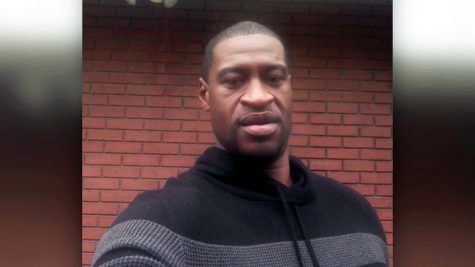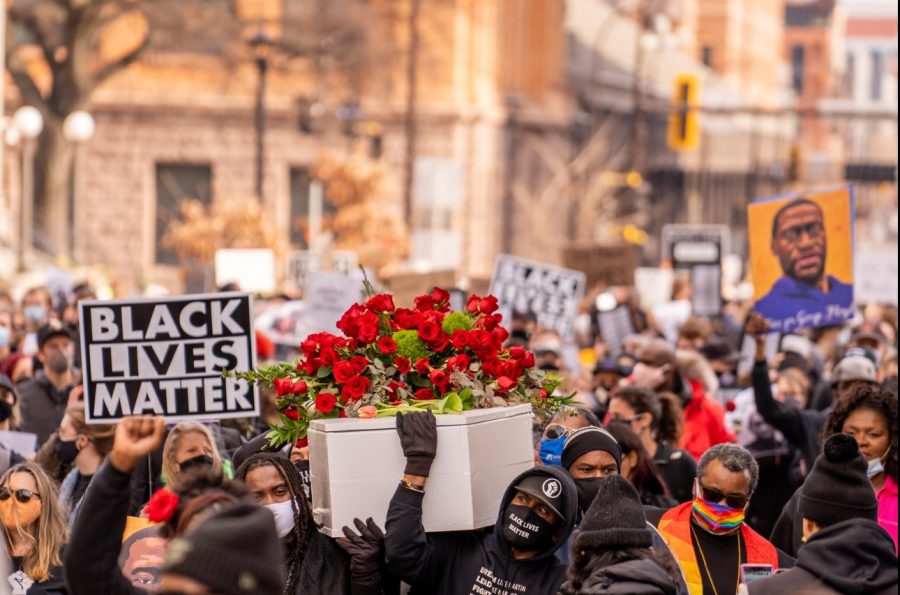The fight for justice
People gather outside in Minneapolis the day before Derek Chauvin’s trial.
June 2, 2021
After months of protest, testimony, and tears, millions of Americans tuned in to hear the verdict of Derek Chauvin, the police officer who knelt on the neck of George Floyd, leading to Floyd’s death. Now, months after the verdict, many are rejoicing over what they believe was justice.
On May 25, 2020, Officer Derek Chauvin was recorded kneeling on the neck of George Floyd, a 46 year-old black man. The officer was called to the scene after a cashier believed that Floyd had given them counterfeit money. A struggle ensued, which eventually led Officer Chauvin to pin Floyd to the ground, placing his knee as his neck for over eight minutes. Shortly after, George Floyd passed away. NBC reported that the medical examiner reviewing the body would rule the death a “homicide” and that the “police officers’ restraint of his body and compression of his neck were the primary causes.”
Following the death of George Floyd, after months of protests erupted in cities, Hennepin County Attorney Mike Freeman charged Derek Chauvin with third-degree murder and second-degree manslaughter. At the request of the Minnesota governor, Minnesota Attorney General Keith Ellison took over the case and would bring on an additional charge of unintentional second-degree murder. In total, if charged with the maximum amount in all three accounts, Chauvin could face up to 40 years in prison. However, before sentencing, ex-officer Chauvin would have to be convicted by a jury.

On March 8, early proceedings began in the trial of Chauvin, with the prosecution beginning to give their case on March 28. From the beginning of the prosecution’s opening remarks to the closing of the defense, the case would total three weeks. Within this time, 38 witnesses would testify on behalf of the prosecution, and seven would testify on the side of the defense. Notable testimony of the defense included Darnella Frazier, who was a witness at the scene and recorded the event at the age of 17. On the defense, an important testimony came from David Fowler, a retired forensic pathologist, who argued the ruling of Floyd’s death should be “undetermined” and not a “homicide.”
After the long three weeks and 27 hours of deliberation, the jury had come to a unanimous decision. On April 20, nearly seven months after Floyd’s death, the jury found Derek Chauvin guilty on all three counts. Celebration erupted in cities around the nation where many felt relieved that they thought a small ounce of justice was served.
Now, in the preceding months, hearings will be had to discuss the sentencing of Derek Chauvin. Under Minnesota law, Chauvin can only be sentenced with the most serious offense, which is second degree murder. Under this charge, the maximum time he can spend in prison is forty years, but due to his no previous convictions, many expect him to get less. Nonetheless, many Americans see this as a giant leap forward in the fight for justice.



